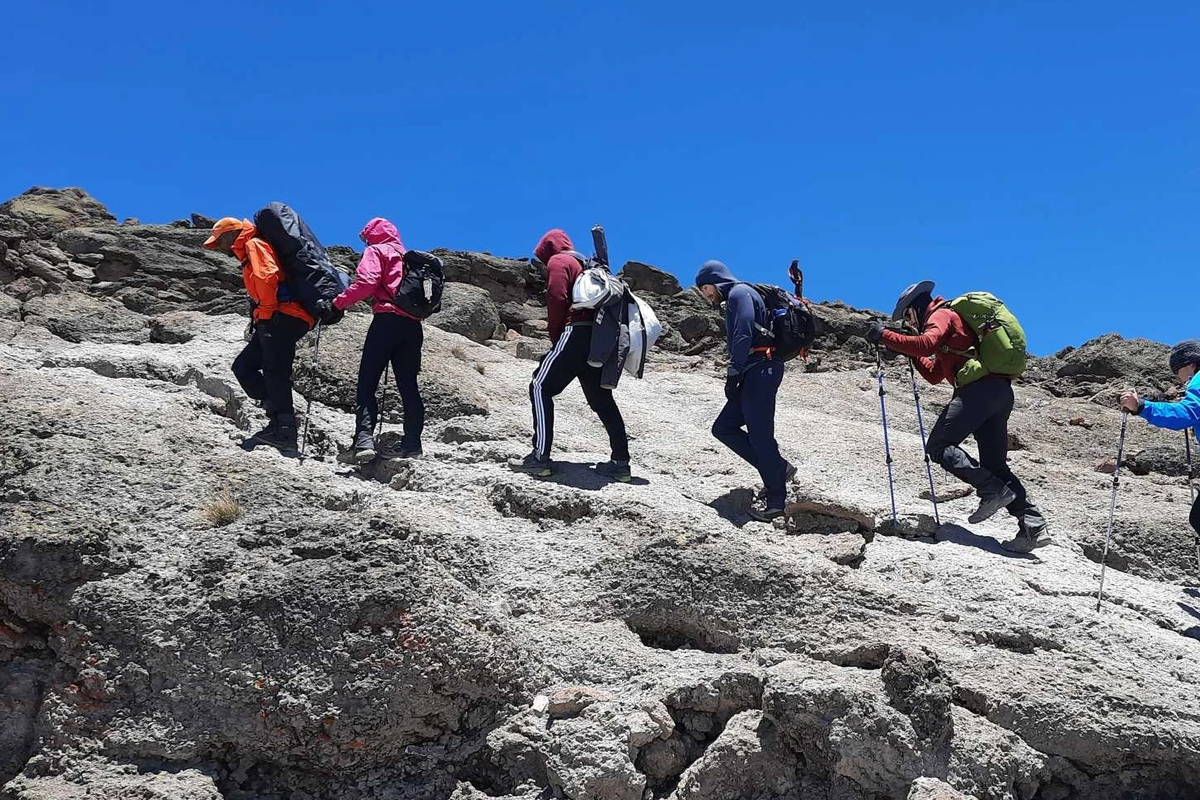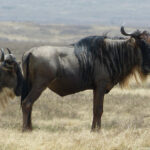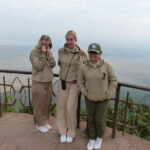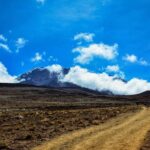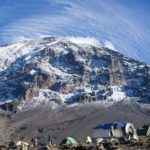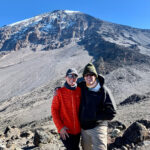Mount Kilimanjaro Trekking Rules 2024
Mount Kilimanjaro, Africa’s tallest peak and a global trekking hotspot, continues to attract adventurers seeking a once-in-a-lifetime challenge. However, as trekking numbers increase, so do concerns about environmental preservation and safety. In response, Tanzania will introduce new regulations for climbers in 2024 to enhance sustainability, safety, and the overall trekking experience.
Understanding the New Rules for 2024
- Mandatory Use of Licensed Tour Operators: To improve the quality and safety of treks, all climbers are now required to book their expeditions through licensed tour operators. This ensures compliance with safety standards and environmental policies while supporting local businesses.
- Revised Permit Fees and What They Cover: Kilimanjaro permit fees have been revised to reflect the cost of enhanced services, including better trail maintenance, improved facilities, and stricter waste management. While these changes may increase the cost of climbing, they aim to provide a safer and more sustainable experience.
- Prohibited Solo Trekking: Solo trekking is no longer allowed. Every climber must be accompanied by a certified guide and support team. This rule enhances safety by ensuring trekkers have expert assistance and minimizes risks associated with altitude sickness and navigation errors.
- Mandatory Trekking Insurance: All climbers are now required to have trekking insurance covering emergencies such as evacuation, altitude-related illnesses, and medical expenses. This rule is aimed at reducing the financial burden on climbers and operators during unforeseen incidents.
Environmental Protection Measures
- Strict Waste Management Policies: To protect Kilimanjaro’s pristine environment, new waste management protocols have been introduced. Tour operators must carry out all waste produced during the trek, including biodegradable items, ensuring the mountain remains litter-free.
- Use of Eco-Friendly Equipment: Trekkers are encouraged to use eco-friendly equipment, such as reusable water bottles, solar-powered devices, and biodegradable toiletries. Licensed operators are also adopting sustainable practices, such as energy-efficient cooking equipment.
- Encouraging Sustainable Trekking Practices: Educational sessions on responsible trekking are now part of the pre-climb briefing. These sessions emphasize the importance of minimizing environmental impact and preserving Kilimanjaro’s natural beauty.
Health and Safety Regulations
- Compulsory Medical Checks: Trekkers must undergo medical checks at designated points during the climb. This ensures early detection of altitude sickness symptoms and other health issues, reducing the risk of severe complications.
- Emergency Response Requirements: Operators are now required to carry essential emergency equipment, including oxygen tanks, stretchers, and communication devices, to handle potential crises effectively.
- Stricter Altitude Sickness Protocols: Guides must monitor climbers closely for signs of altitude sickness. Immediate descent protocols are enforced for those showing severe symptoms, prioritizing health over summit goals.
Guide and Porter Regulations
- Fair Wages for Porters: The new regulations include mandatory minimum wages for porters, ensuring fair compensation for their labor. This rule aims to improve working conditions and support the local workforce.
- Limits on Porter Loads: To prevent exploitation, strict limits have been set on how much porters can carry. This change promotes their physical well-being and aligns with ethical trekking standards.
- Guide-to-Client Ratios: The new rules stipulate specific guide-to-client ratios, ensuring climbers receive adequate support and guidance throughout the trek.
Route-Specific Guidelines
- New Rules for Popular Routes
Each Kilimanjaro route now has tailored guidelines to address its unique challenges and environmental concerns.
- Lemosho and Machame Routes: These scenic routes are limited to smaller groups to reduce environmental impact and maintain the quality of the trekking experience.
- Marangu and Northern Circuit Routes: Stricter booking requirements have been introduced to regulate traffic on these routes, ensuring a more manageable and enjoyable climb.
The Impact of the New Rules
- Benefits for Trekkers: The regulations prioritize trekkers’ safety and experience, offering better trail conditions, trained support teams, and enhanced emergency response systems.
- Benefits for Local Communities: By mandating fair wages and licensed operators, the new rules support local employment and promote ethical tourism practices.
- Environmental Preservation: With waste management and sustainable trekking practices at the forefront, the regulations help preserve Kilimanjaro’s fragile ecosystem for future generations.
How to Prepare for Kilimanjaro in 2024
- Choosing the Right Tour Operator: Trekkers should research and book with licensed operators who comply with the new rules. Look for companies with excellent safety records and sustainable practices.
- Budgeting for the Climb Under New Fees: Climbing costs may increase with the revised fees. Budgeting for permits, insurance, equipment, and tips for the support team is crucial for a successful climb.
- Packing for Compliance with Regulations: Pack eco-friendly and lightweight gear, including reusable bottles, waterproof bags for waste, and sufficient warm clothing. Ensure all items meet the guidelines provided by your operator.
The new rules for climbing Mount Kilimanjaro in 2024 are a step forward in ensuring the mountain’s safety, sustainability, and accessibility. By embracing these changes, trekkers contribute to preserving this iconic peak for generations while enjoying a safer and more rewarding adventure.
FAQs
- Why were new rules introduced for climbing Mount Kilimanjaro in 2024?
The new rules aim to improve safety, promote sustainability, and enhance the overall trekking experience. - Are solo climbs still allowed under the new regulations?
No, solo trekking is prohibited. All climbers must be accompanied by licensed guides and support teams. - What are the revised costs for Kilimanjaro permits in 2024?
Permit costs now include enhanced services such as trail maintenance, waste management, and safety measures. Exact fees vary based on the route. - How do the new rules impact porters and guides?
The regulations ensure fair wages, reasonable load limits, and improved working conditions for porters and guides. - What are the best tips for preparing for Kilimanjaro under the new guidelines?
Choose a licensed operator, budget carefully for fees and tips, pack eco-friendly gear, and prepare for altitude challenges.
Plan Your Tanzanian Adventure Today!
Explore our pages to learn more about:
- Kilimanjaro Climb Packing List
- Kilimanjaro FAQs
- Cultural Tours
- Day Trip Tours
- Lake Manyara National Park
- Ngorongoro Crater
- Serengeti National Park
Start your unforgettable journey with us on our website!

